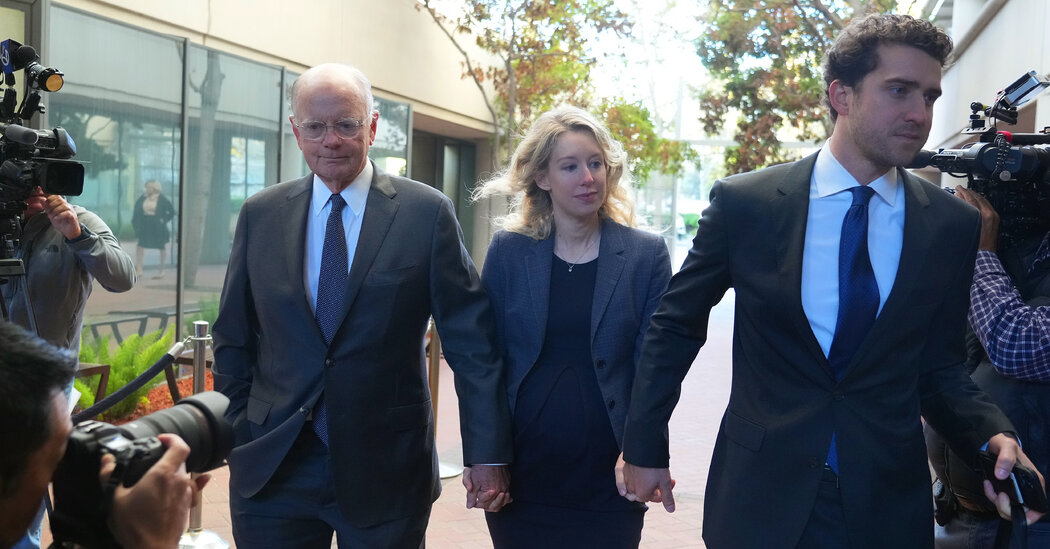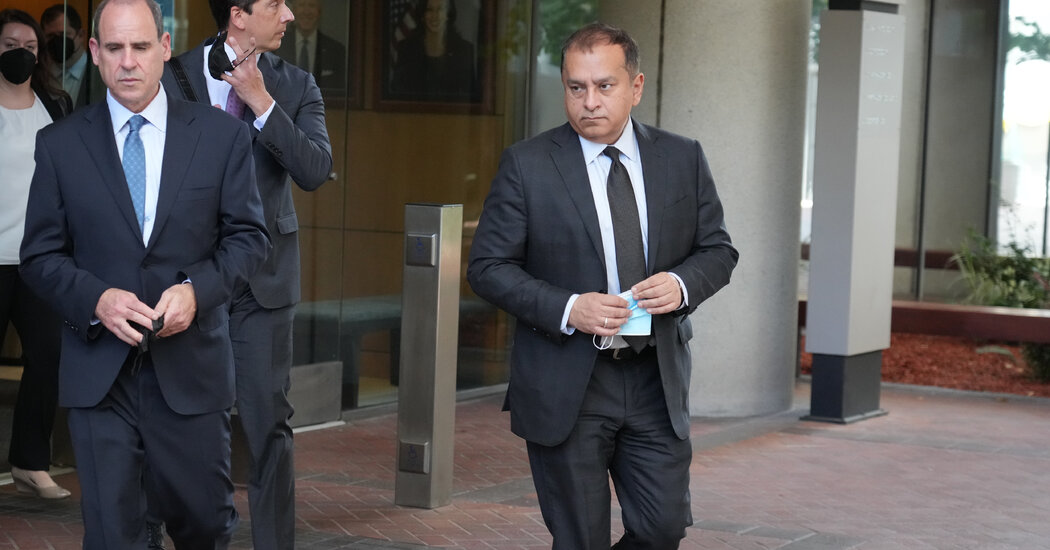Elizabeth Holmes Set to Report to Prison Tuesday in Texas
The disgraced founder of the blood testing start-up Theranos, who was convicted of fraud, is expected to report to a minimum-security prison in Texas.Elizabeth Holmes, the disgraced entrepreneur who was convicted of defrauding investors at her failed blood testing start-up Theranos, is expected to report to a federal prison in Texas on Tuesday to begin her 11-year, three-month sentence.Ms. Holmes is expected to report to FPC Bryan, a minimum-security prison camp for women located roughly 90 minutes from Houston. Its 655 inmates are required to work in the cafeteria or in a manufacturing facility, where pay starts at $1.15 an hour, according to the prison’s handbook. Before starting work at the factory, Ms. Holmes may take a test to assess her strengths in areas such as business, clerical, numerical, logic, mechanical and “social.” Inmates can also enroll in a “Lean Six Sigma” training program to learn about efficiency.“We try to help our ladies obtain work in the factory which focuses on their strengths so they may develop additional marketable skills,” the prison’s handbook says.Ms. Holmes, 39, was found guilty last year of four counts of wire fraud and conspiracy for falsely claiming that Theranos’s blood tests could detect a variety of ailments with just a few drops of blood. She and her former business partner, Ramesh Balwani, must together pay $452 million in restitution to investors who were defrauded. Ms. Holmes has appealed her case, though her requests to remain out of prison during the appeal have been denied.Ms. Holmes founded Theranos in 2003 after dropping out of Stanford University at age 19. The company raised $950 million in funding, making her a billionaire on paper. Theranos collapsed in 2018. Ms. Holmes and Mr. Balwani were indicted that year.The pair were tried separately. Mr. Balwani was convicted on 12 counts of fraud and is serving a nearly 13-year sentence in a federal prison in San Pedro, Calif. He has also appealed his case.Ms. Holmes’s sentence was meant to send a message to others in Silicon Valley: There are consequences when ambitious start-up founders take an ethos known as “fake it till you make it” — when entrepreneurs speak ambitiously about what their companies can do, even if the companies can’t yet do those things — too far. Despite the tech industry’s long history of stretching the rules, as entrepreneurs invent new businesses and disrupt old ones, few have ever gone to prison for lying.Since her conviction, Ms. Holmes has been living in a rental home in San Diego near the family of Billy Evans, who is the father of her two children. During her trial, held in San Jose, Calif., Ms. Holmes and Mr. Evans lived in a home on the grounds of Green Gables, a $135 million estate in the wealthy town of Woodside.Their two young children, William and Invicta, will be able to conduct video calls with Ms. Holmes and visit her on weekends and federal holidays. Phone calls are limited to 15 minutes each, with a total of 300 minutes per month.At FPC Bryan, Ms. Holmes, known for wearing black turtlenecks to mimic Steve Jobs while running Theranos, and, during her trial, sporting heels, sheath dresses and a diaper bag, will wear prison-issued khaki pants and shirts in pastel green, gray, or white with athletic shoes that must not exceed $100 in value.She will not have any internet access but can buy a radio ($31.75) or MP3 player ($88.40) from the commissary. All music must be “non-explicit,” according to the prison’s handbook.FPC Bryan offers leisure activities including music programs, “table games” and movies, according to its handbook. Arts and crafts are available, including beading, knitting, paper art, crochet and ceramics. A crochet needle costs $1.30 and yarn is $3.55 at FPC Bryan’s commissary, according to the handbook.Inmates are allowed to access an outdoor “recreation yard pavilion” but must return to their dorms for head counts that occur five times every 24 hours.Counterfeiting or forging documents and conducting a business are against the rules. Ms. Holmes admitted to falsifying pharmaceutical reports to solicit investors while testifying in her trial.Other inmates at the prison camp include Jen Shah, a “Real Housewives of Salt Lake City” star who is serving a five-and-a-half year sentence for wire fraud related to telemarketing. In a blog post from March about her first few days in prison, Ms. Shah described difficulty operating the phone system, which uses account numbers, and noted that not many people were nice. Breakfast was instant oatmeal, an apple and a slice of wheat bread with jelly, she wrote.Lea Fastow, a former executive for the collapsed energy company Enron, was incarcerated for tax fraud at FPC Bryan for 11 months in the mid-2000s. Jenna Ryan, a participant in the Jan. 6 attack on the U.S. Capitol, spent 60 days there. And Michelle Janavs, daughter of the Hot Pocket co-founder, served five months for her association with the “Operation Varsity Blues” college admissions scandal.Three inmates escaped FPC Bryan in 2017. One of them, Edith Lara, who was serving time for drug charges, has not been found, according to the Bureau of Prisons website.
Read more →





